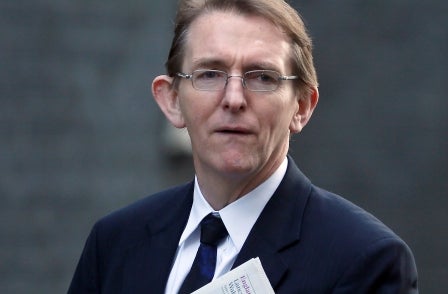
Sun editor Tony Gallagher said the paper has not yet decided whether it will campaign for Britain's exit from the European Union.
But speaking at a conference in London yesterday he also said: "We have written about 55 editorials on Europe since I arrived on the 14th of September and the tone of them is extremely skeptical."
Gallagher was responding to a question at the Shift conference organised by Newsworks about whether he, as editor, would be free to decide the paper's stance on Brexit.
He added: "Does that mean we are going to campaign for Brexit? I don't know, haven't quite decided yet."
He said that one of the first things he did when he joined as editor was to commission research which found "the readership was pretty hostile to the European project". He said: "That has guided some of our thinking editorially."
Gallagher came to The Sun from the Daily Mail, where he was deputy editor, and he previously edited the Daily Telegraph.
Asked how working for the red-top tabloid compares with his previous jobs, he said: "Probably 80 per cent of what I do every day fits very comfortably into the Daily Mail and would fit very comfortably into the Daily Telegraph.
"The difference with The Sun is the high emphasis on humour, the amount of irreverence, the high premium that's placed on exclusive stories and also the emphasis on the Sun community." He noted that four million Sun readers have booked a holiday through the paper over the last four years.
Describing the paper's ethos, he said: "We want to take no prisoners every day, no friends, no fear or favour."
He said that publisher News UK has high hopes for Sun Bets, a new gambling service on the Sun website which is set to launch in August, and that there are also plans to start serving news content on social media service Snapchat.
Gallagher said his day starts at 6am with the Today programme and finishes at 11pm when he looks at other titles' front pages.
He added: "We are very aggressive at night, we change a lot so that the paper you get in London should comprehensively cover everything from the Financial Times to the Daily Star."
Gallagher said that Facebook is the most important social network for driving traffic to The Sun website and that Twitter: "has probably changed from being a driver of traffic to essentially a competitor for the likes of Press Association, we now use it as a news source".
After Gallagher was sacked as editor of the Daily Telegraph in 2014 he worked in the kitchen of a Spanish restaurant whilst on gardening leave.
He said: "There is something that journalists can probably learn from the restaurant trade in that a lot of journalists become consumed with the idea that they are part of a profession and in some sense they are part of an academic discipline.
"I think that's wrong, it's a trade and you learn it by practising it. The idea that it's a profession and held to the same standard as doctors and accountants is something that's grown up over the last 20 years and should be resisted.
"You become a journalist by practising it not by learning it in a classroom. I think one of the mistakes the media industry has made over the last 20 years is it has become that you have to have a degree and then a post-graduate MA in journalism and I think it is a shame that we seem to have cut off that route of coming into the trade at the age of 18, without necessarily going into the third tier of education and it something we are looking at very closely at News UK."
On the subject of the importance of newspapers when it comes to breaking exclusive stories and setting the news agenda, Gallagher said: "I never see something on the six o'clock or 10 o'clock news that I don't already know. I'm genuinely startled when I see something on the BBC that I'm unaware of. It tends to be printed media that is responsible for setting the terms of the debate."
Gallagher spoke positively about The New Day, the new national newspaper launched by Trinity Mirror on Monday. But he questioned whether readers will pay 50p for it.
"It behoves all of us to welcome a new entrant to the market. It's exciting to see new types of journalism and I do hope it's a success. I noticed the reaction to it was mixed and there was a lot of hostility to it, and I remember exactly the same reaction to the launch of Metro…It went on to be a soaraway success.
"I won't lie, I think its a challenge to to expect people to pay 50p for it in an extremely competitive market. But I wish them every success. It's nice that we've go a new paper just as another one is dying."
Email pged@pressgazette.co.uk to point out mistakes, provide story tips or send in a letter for publication on our "Letters Page" blog
